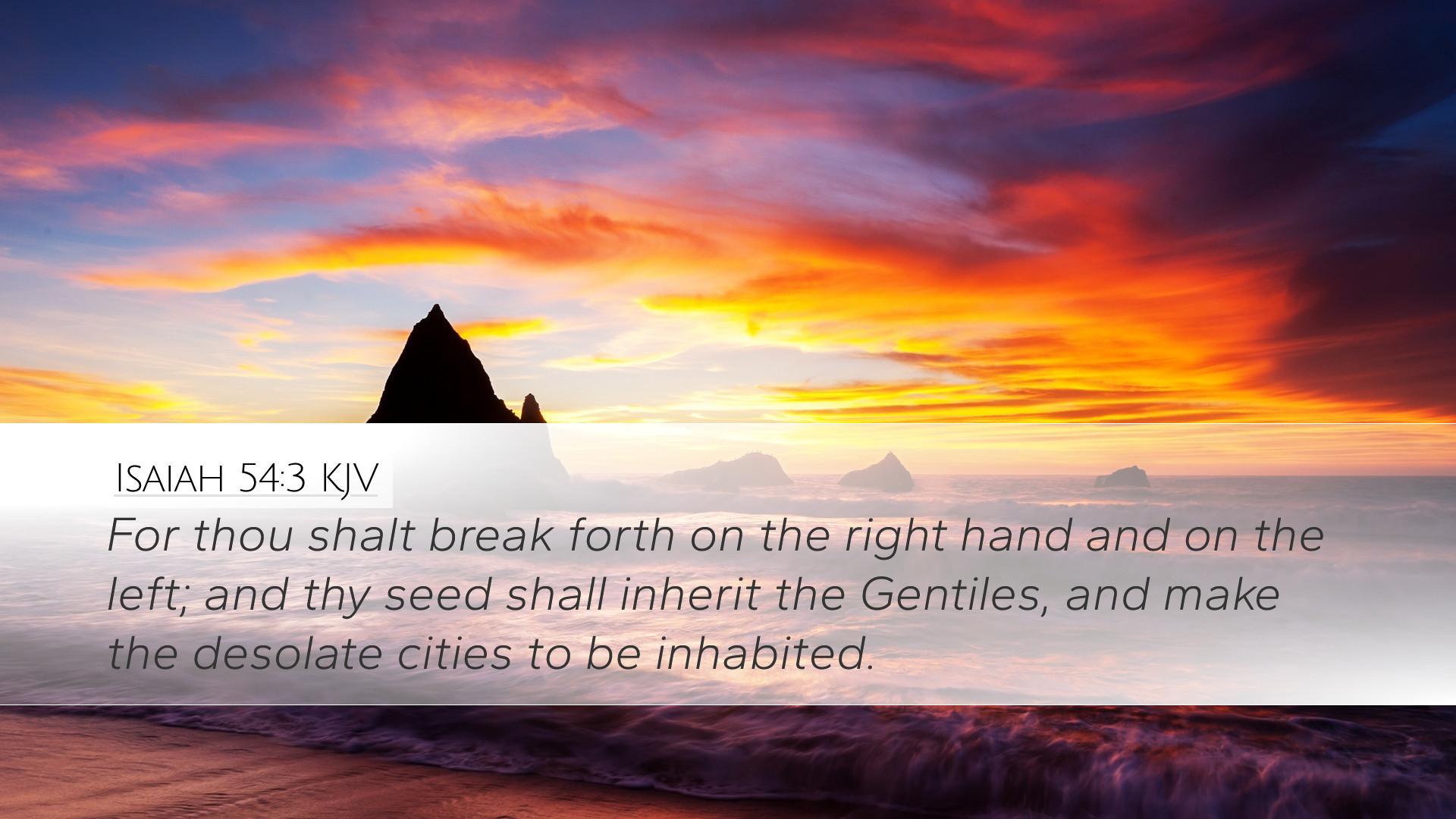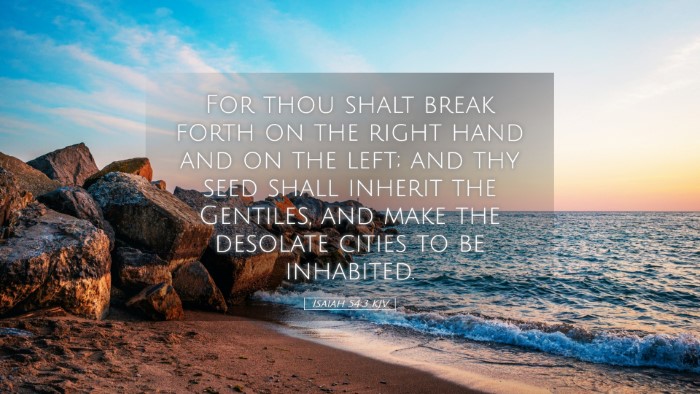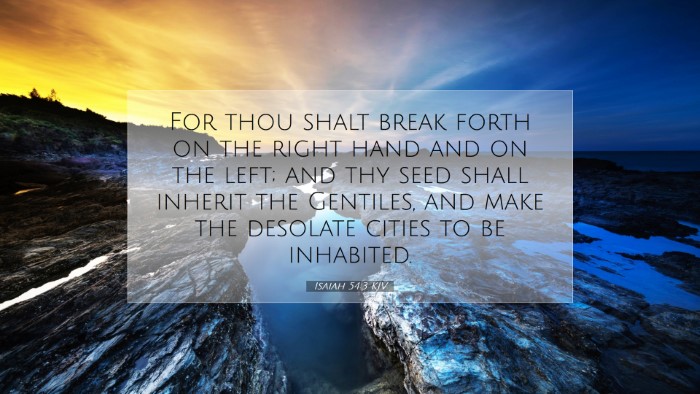Commentary on Isaiah 54:3
Isaiah 54:3 states: "For thou shalt break forth on the right hand and on the left; and thy seed shall inherit the Gentiles, and make the desolate cities to be inhabited." This verse proclaims a message of expansion, inheritance, and restoration, relevant to the people of Israel following their trials.
Contextual Overview
The context of Isaiah 54 is crucial for understanding its implications. The preceding chapters deal with Israel's impending judgment due to idolatry and sin, but they culminate in promises of restoration and abundance. This chapter shifts the narrative towards hope and Divine favor.
Exegesis and Insights
Several prominent commentaries provide valuable insights into this significant verse:
-
Matthew Henry:
Henry posits that this verse signals a time of growth and prosperity for Israel, who had been likened to a barren woman in earlier sections of the text. He emphasizes the transformative power of God, who not only restores but also expands the borders of His people. The metaphor of breaking forth suggests a sudden and vigorous growth, reminiscent of a sprouting seed bursting through the soil.
-
Albert Barnes:
Barnes elaborates on the phrase "break forth on the right hand and on the left" as an indication of thorough and unrestrained expansion. He interprets the 'seed' as the descendants of Israel who will have influence over the nations, signifying the reclamation of land and the increase of familial and societal structures. The Lord's promise includes not only material success but also spiritual significance — the fulfillment of God's covenant with His people.
-
Adam Clarke:
Clarke notes the prophetic nature of this verse, linking it to the ultimate fulfillment of the Gospel where the heirs of the promise are not simply Israel but include the Gentiles who are engrafted into the family of God through faith. His interpretation stresses that the desolate cities represent both physical desolation experienced by Israel and spiritual desolation that Jesus came to address. Clarke sees this as a dual fulfillment — in both the historical context and the broader redemptive narrative.
Theological Implications
The promise of expansion and inheritance in Isaiah 54:3 carries deep theological significance:
- Divine Restoration: The concept of breaking forth illustrates God's redemptive action in the lives of His people. It is a reminder that the apparent end of hope is often the beginning of new possibilities through God's grace.
- Universal Expansion of God's Kingdom: The inheritance of the Gentiles foretells the inclusivity of God's plan. It alludes to the Great Commission, where the gospel is to be proclaimed to all nations, inviting every tribe and tongue into His kingdom.
- Restoration of Communities: The reference to desolate cities being inhabited speaks to a physical and social renewal that God promises to His people. It reinforces the belief that God can restore not only individuals but also communities ravaged by chaos and displacement.
Application for Today's Believers
This verse holds different applications for various segments of modern believers:
- For Pastors: A call to lead their congregations toward embracing a vision of growth and outreach. Pastors are encouraged to trust in God’s promises, motivating their communities to reach out beyond existing boundaries.
- For Students: This passage invites deeper study into God’s redemptive work. Students of the Bible may find encouragement in scholarly exploration, recognizing God’s hand in history as he builds His church across cultures.
- For Theologians: A rich verse for theological reflection on topics of grace, restoration, and mission. Theologians may draw connections between this text and the development of missional theology, exploring implications for Christian ministry.
- For Bible Scholars: An opportunity to engage in textual criticism and historical analysis. Scholars may dissect the original language and cultural idioms to uncover layers of meaning encapsulated in the text.
Conclusion
Isaiah 54:3 stands as a powerful declaration of hope and promise amidst desolation. By synthesizing commentary insights from Matthew Henry, Albert Barnes, and Adam Clarke, we understand that this passage not only addresses the immediate concerns of its original audience but also serves as a foundational promise for all believers today. Through God’s transformative power, we are assured of His intention to expand, inherit, and restore, giving every believer cause for hope and active participation in the unfolding of His divine plan.


